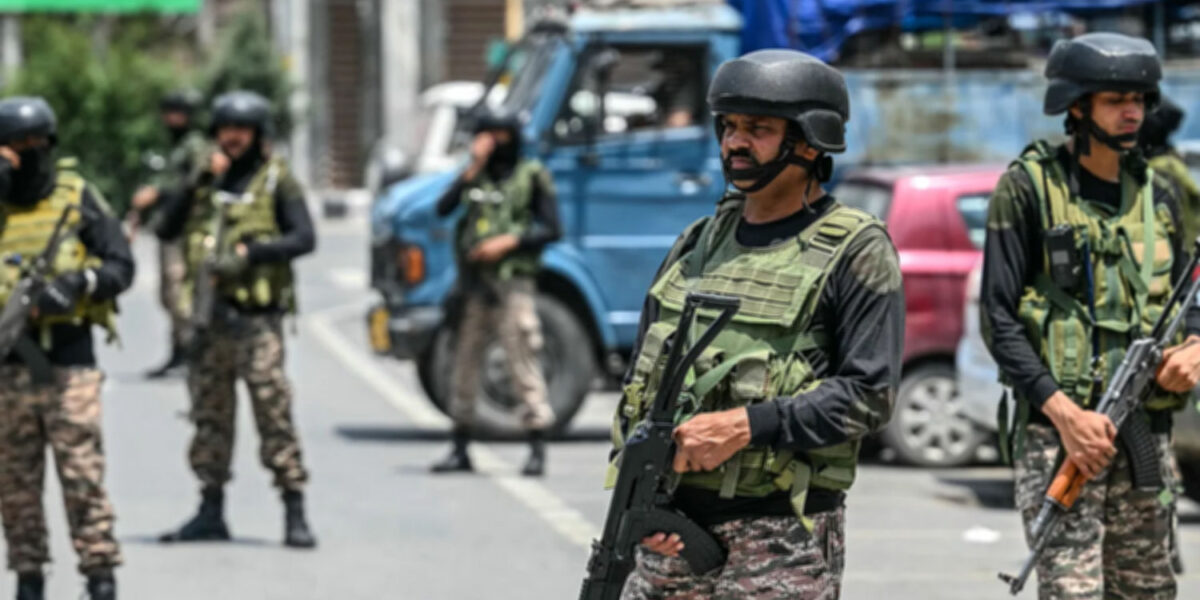Jahangir Mohammed argues that India miscalculated Pakistan’s military strength, a battle-hardened nation that has been engaged in wars for 45 years, both internally and externally. During this time, it has allied with two of the world’s major military superpowers, providing its military with valuable strategic depth and combat experience.
India’s Miscalculation of Pakistan’s Military and Strategic Strength
Last week, two nuclear powers were involved in a military confrontation in the skies, marking yet another conflict over Indian-occupied Kashmir between them since 1948. India accused Pakistan of an attack on tourists in Pahalgam, Kashmir, which ended the pretence of normalcy in the region since India’s annexation in August 2019. India’s political, media, and religious classes went into a propaganda and dehumanisation overdrive, calling for revenge against Pakistan and Pakistanis. The language reflected hubris, the pretence of being a regional hegemon and “the biggest democracy in the world.” India is undoubtedly an economic giant, and the recent trade deals with the UK and the US have inflated Indian political egos.
Pakistan, on the other hand, is enduring its worst period of political and economic instability and crisis since its inception, with significant divides between the people and its military rulers. The country is reliant on international loans for survival. Internally, it has recently faced increasing levels of separatist terrorism.
With the BJP facing a crucial state election in Bihar later this year and Pakistan in political and economic turmoil, India’s leaders calculated it was an opportune moment to seek electoral gain and take advantage. Using the well-worn strategy of smearing Pakistan with terrorism, they believed the international community would side with them and isolate Pakistan. India viewed this as an ideal opportunity to destabilise Pakistan, taking advantage of its internal divisions and weaknesses, hoping their own perceived military advantages would turn the Pakistani people against their army. This was not about retaliation; it was about regional dominance and a war plan.
However, as we now know, the Pakistani forces not only defended the country with confidence and control, but when they eventually struck back, it was a devastating display of military power executed with skill and precision.
On the diplomatic front, the Pakistani spokespersons remained calm and presented their case persuasively. Instead of being placed on the FATF grey list, as called for by India, the IMF released another seven billion dollars in loans to Pakistan. On the PR front, Pakistan restored internet and social media access that had been curtailed during its political troubles. In contrast, India restricted its citizens’ access to social media. Many analysts are familiar with Indian media and its Hindutva propaganda, which often descends into fantasy and farce. It is also a hotbed of anti-Muslim and anti-Pakistan sentiment. The rest of the world was exposed to Indian media, “journalism,” and Hindutva for the first time, and it was shocking. Fictional stories about taking over Pakistani cities, occupying Pakistan, and even regime change were perhaps wishful thinking, but many in India believed them.
India’s Miscalculation.
The recent military and diplomatic developments have exposed a critical miscalculation in India’s perception of Pakistan’s strength. Fuelled by Hindutva ideology, Indian political and military narratives have consistently dehumanised and dismissed Pakistan as an economically weak and militarily incompetent neighbour. Pakistanis are stereotyped as religious extremists or terrorists, backwards and as economic beggars, failures and worse. This narrative, repeated across political and media platforms, has cultivated a dangerous sense of supremacy and invincibility in Indian political and military thinking.
However, the reality on the ground starkly contradicts this perception. Despite Pakistan’s internal political and economic challenges, its military capability remains robust, battle-hardened, and strategically aligned with major global powers such as the United States and China. Pakistan has been in a constant state of war since 1979, actively engaged in military conflicts alongside the United States, playing a pivotal role in the Afghan war against the Soviet Union and thereafter during the war on terror. This involvement has not only strengthened its military but also provided Pakistan with decades of practical warfare experience, intelligence collaboration, and tactical advancements. Internally, Pakistan has long been the victim of terrorism, suffering around 80,000 casualties. Its military, intelligence service, and people possess invaluable experience in living with internal threats and war.
India’s recent attempts to assert dominance over Pakistan, both militarily and diplomatically, have failed to achieve their objectives. On the battlefield, Pakistan’s air defence capabilities have demonstrated surprising strength, neutralising India’s supposedly superior technologies, such as the S-400 air defence system and Rafale jets. These failures have not only exposed gaps in India’s strategic calculations but have also shaken its perceived military superiority in the region.
Diplomatically, India’s narrative of Pakistan as a ‘beggar state’ reliant on international aid crumbled as global powers, including the United States, resisted aligning wholly with India’s stance. President Trump openly offered to mediate on the Kashmir issue, a move that brought the conflict back into international focus, much to India’s dismay.
This misjudgment is rooted in a broader ideological narrative driven by Hindutva, which seeks to project India as a dominant regional power, unchallenged by its neighbours. This ideology not only inflates India’s self-perception but also blinds its leadership to the evolving military and strategic alliances that Pakistan has fostered, particularly with China. For years, India’s political rhetoric has been dominated by aggressive posturing against Pakistan, ignoring the complex realities of Pakistan’s military strategy and its long-standing experience in conflict scenarios.
The aftermath of these failed manoeuvres should serve as a moment of introspection for Indian leadership. Hindutva’s overconfidence has not only led to diplomatic and military setbacks but has also exposed the dangerous consequences of believing one’s own propaganda. For India to genuinely pursue regional stability and international respect, it must abandon its ideological blinders and address its own economic disparities, caste, Muslim, and Kashmiri oppression, as well as its political divides, rather than externalising its failures onto Pakistan.
A Time for Introspection
For Pakistan, the recent show of military strength should not be a cause for complacency. True victory lies not just in defence but in the resolution of its internal challenges. Pakistan must also prioritise resolving the Kashmir issue with justice, restoring its own political stability, and addressing its economic vulnerabilities and development needs. Military strength is necessary, but political stability, competence and economic resilience are essential for lasting peace and regional respect.
For India, the path forward demands the abandonment of Hindutva supremacy and the toxic propaganda that has poisoned its domestic and foreign policy. Blaming Muslims and Pakistan for its internal issues is a dangerous distraction from its own societal fractures—caste oppression, rising poverty and inequality, and religious intolerance. India must free Kashmiris from oppression and allow them the right to self-determination as promised under international law. The oppression of Kashmiris and Muslims only deepens divisions and breeds resentment not just in India but beyond. India must rethink its military alliance with Israel, which brings Israel into the South Asia region. It must also come to terms with the fact that it is not the dominant economic and military power in the region; China is.
The Path to Peace:
Both nations must realise that war benefits no one; it leaves devastation on all sides. India has just learned that war is not a Hollywood or Bollywood movie; it has real consequences. Genuine leadership would mean addressing internal crises rather than projecting them onto one another. Xenophobia, jingoism, and ultra-nationalism might provide short-lived political gains, but eventually, they destroy nations. India and Pakistan, as responsible nuclear powers, must recognise the need for dialogue, freedom and justice for Kashmir, and a genuine commitment to peace; only then can South Asia see proper stability and progress.



Leave a Reply